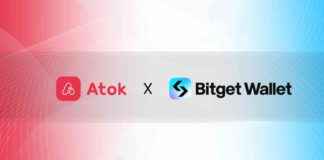Eclipse, a new blockchain platform, has finally launched its mainnet, combining technology from Ethereum and Solana to create a unique layer-2 network. This innovative network, similar to other layer-2 Ethereum rollups, allows users to transact on Ethereum with increased speed and lower fees. By utilizing the Solana Virtual Machine (SVM), Eclipse operates as its own network and periodically transfers bundled transactions to the base Ethereum chain for permanent recording on the ledger.
Eclipse CEO Vijay Chetty expressed the platform’s ability to bridge the gap between Ethereum and Solana ecosystems, offering developers the opportunity to scale their applications without the need to choose between the two leading blockchain networks. The SVM architecture enables Solana-native developers to create decentralized applications (dApps) that run faster and cost less than Ethereum-native apps. While Solana is recognized for its transaction speed and affordability, Ethereum is known for its security and liquidity. This modular setup on Eclipse allows dApps to easily interact with native Solana apps, facilitating the connection of liquidity from both ecosystems.
The Eclipse Foundation announced that several projects, including DeFi platform Orca, and consumer-focused Save and Nucleus, have already joined the Eclipse mainnet. Over 60 decentralized applications in finance, gaming, and digital services are expected to be hosted on the network. With its cross-ecosystem approach, Eclipse has garnered significant attention in the blockchain space, raising over $50 million from investors.
However, the project faced controversies during its development phase. Neel Somani, co-founder and former CEO of Eclipse Labs, was removed from the company following allegations of sexual misconduct. Additionally, a CoinDesk investigation revealed that Somani had allocated a large portion of the token supply to a partner at Polychain without proper disclosure, violating conflict of interest policies. Eclipse has since stated that the token supply deal with the Polychain partner no longer exists.
Despite these challenges, Eclipse’s launch marks a significant milestone in the blockchain industry, offering a new platform for developers and users to benefit from the combined strengths of Ethereum and Solana. As the network continues to onboard projects and expand its ecosystem, it has the potential to shape the future of decentralized applications and blockchain technology.


















